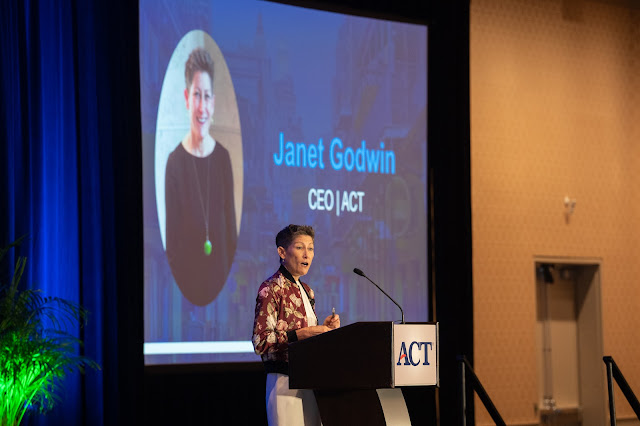By: Dianne Henderson, vice president of Research at ACT
In 1972, ACT and the American Educational Research Association (AERA) created the E.F. Lindquist Award to honor outstanding applied or theoretical researchers and practitioners in testing and measurement. The award is named after Dr. Lindquist, the legendary scholar, scientist, professor, and practitioner who co-founded ACT in 1959. Lindquist believed in the importance of instruction and teaching for accurate measurement of the results and the Lindquist scholarship recipients continue to validate and expand on his findings.
“Awards shine a light on the work being done to solve the largest challenges facing our field and our country,” said Janet Godwin, ACT CEO. “To be able to simultaneously recognize the legacy of Dr. Lindquist and the contributions of today’s pioneering leaders in assessment and testing research is a true privilege.”
Lindquist’s effect on education research has helped develop a new generation of research scholars who are making a difference in discovering learning capabilities, best practices, and improved assessments.
“Lindquist was prescient on a number of the most important research questions in education,” Dr. Dan Koretz, the 2022 Lindquist Award recipient, said. Lindquist focused his acclaimed assessments on achievement. Rather than having their fates sealed by inscrutable and immutable “aptitude,” Lindquist believed all students with access to rigorous curricula, strong instruction, and robust support systems could succeed if they applied their full talent to the task.
He also believed that assessment – or to be more precise, assessment’s role in encouraging students to master the material and practice the skills their tests were likely to cover – was essential to learning, a view that holds currency today.
“When the teacher says, ‘It’s going to be on the test,’ that influences student behavior before the test is ever given,” said Edward Haertel, a past Lindquist Award recipient. “That’s the way it’s supposed to work.”
When in balance, this scholastic symbiosis seems like a force for good. However, when the testing tail starts wagging the teaching dog, trouble can ensue.
“What’s happened is exactly what Lindquist said would happen if people become familiar with the sample used to build the test,” said Koretz. “Under low-stakes conditions they don’t have a lot of reason to worry about the sample. But when their jobs are on the line, they do, and they focus on the sample rather than the domain.”
Other scholarship recipients also observed that, as more research on education practices is conducted, education leaders and policymakers can help improve the inequities and gaps in learning in the education system. “Our goal is to help teachers use the technology to help students learn in a more effective way,” explained Hua-Hua Chang. And Eva Baker said that, “We’re now looking more at the integration of social and emotional skills…[the] whole part of what it means to be a person.”
Lindquist noted that the need for evaluation and the need for direction of instruction through objective measurement is certainly not going to diminish and that the field of measurement presents enormous opportunities. As the scholarship program celebrates its 50th year of excellence, the goal is to continue the mission of shining a spotlight on researchers in education making a difference with plans to continue to diversify the scholarship program to honor Lindquist’s legacy.
“The 2022 E.F. Lindquist Award, for example, didn’t just mark a milestone in the career of Daniel M. Koretz,” said Godwin. “It also presented an opportunity to learn from Dr. Koretz’s transformative findings on score inflation, the assessment of students with disabilities, and other compelling issues in education assessment.”
“I think the group has been defined by talented, reflective, and accomplished individuals who seek to shift paradigms,” said Felice J. Levine, executive director of AERA. “Award winners are emblematic of where the field is, and where the field needs to be going.”
Learn more about Lindquist’s legacy and the 50th anniversary of this award by exploring ACT’s new brief here. And nominate the next awardee on AERA’s website here.

